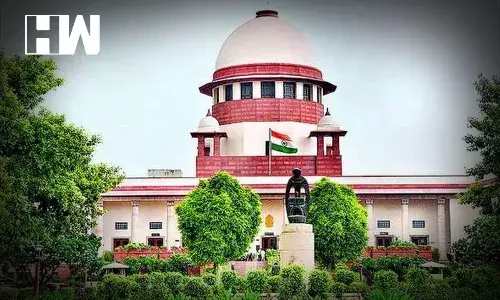“Demonetisation of all series of notes at the instance of Central Govt is a far more serious issue than the demonetization of particular series by the bank. So, it has to be done through legislation.”
The Supreme Court Constitution Bench has upheld by a 4:1 majority the decision taken by the Union Government six years ago to demonetize the currency notes of Rs. 500 and Rs.1000 denominations. Reported Live Law.
The majority held that the Centre’s notification dated November 8, 2016, is valid and satisfies the test of proportionality. Justice BV Nagarathna in her dissenting view held that though demonetization was well-intentioned and well-thought-of, it has to be declared unlawful on legal grounds (and not on the basis of objects).
The 5-judge comprising Justices S Abdul Nazeer, BR Gavai, AS Bopanna, V Ramasubramanian, and BV Nagarathna had reserved the judgment on December 7, 2022.
Reading the majority judgment, Justice BR Gavai said: “Demonetization had a reasonable nexus with the objectives (eradicating black marketing, terror funding, etc.) sought to be achieved”. He added that it is irrelevant whether the goal was completed or not.”
The bench further held that the prescribed period of 52 days for currency exchange cannot be said to be unreasonable.
It added that the decision-making process cannot be faulted merely because the proposal emanated from the Central Govt. “There has to be great restraint in matters of economic policy. The court cannot supplant the wisdom of executive with its wisdom.”
The bench further held that Section 26(2) RBI Act, which empowers the Centre to demonetize any series of bank notes of any denomination, can be used to demonetize the whole series of currency. It observed.
“Restrictive meaning cannot be given to the word “any” in Section 26(2) of the RBI Act. The modern trend is of pragmatic interpretation. The interpretation which leads to absurdity must be avoided. The purposes of the Act must be considered while interpretation.”
The bench added that Section 26(2) cannot be struck down as unconstitutional on the ground of excessive delegation, adding that there are inbuilt safeguards.
“Delegation is made to Central Govt which is answerable to Parliament which in turn is answerable to the citizen of the country. The Central Govt is required to take the action after the consultation with the Central Board and there is an inbuilt safeguard.”
However, Justice BV Nagarathna in her dissenting view held that demonetization of the whole series of Rs 500 and Rs 1000 currency notes is a serious matter and it could not be done by the Centre by merely issuing a gazette notification. She said that though the measure was well-intentioned and well thought of, it has to be declared unlawful on legal grounds (and not on the basis of objects).
“Demonetisation of all series of notes at the instance of Central Govt is a far more serious issue than the demonetization of particular series by the bank. So, it has to be done through legislation.”
The judge further expressed that the RBI did not show the independent application of mind and merely approved the Centre’s desire for demonetization. “On looking at the records submitted by RBI, there are words “as desired by the Central Govt”…this demonstrates there was no independent application by the RBI. The entire exercise was carried out in 24 hours.
She also differed from the majority judgment on the point of powers of Central Govt under Section 26(2) RBI Act.
Firstly, she held that “Any series” under Section 26(2) RBI Act cannot mean “all series”. “Section 26(2) can be only for a particular series of currency notes & not for the whole series of currency notes of a denomination.”
Next, the judge held that RBI Act does not envisage initiation of demonetisation by the central govt. As per Section 26(2), the proposal for demonetisation to emanate from the central board of the RBI, she held. Justice Nagarathna further held that if demonetisation is to be initiated by the central govt, such power is to be through a legislation or an ordinance derived from Entry 36 of List I which speaks of currency, coinage, legal tender, and foreign exchange.Reported Live Law.
The judge further explained, “The proposal originated from the Central Government and the opinion of the RBI was sought. Such an opinion given by the RBI cannot be construed as a “recommendation” under Section 26(2) of the RBI Act…When the proposal for demonetisation originates from the Central Govt, it is not under Section 26(2) RBI Act. It is to be way of a legislation, and if secrecy is needed, then by way of an Ordinance.”
However, looking at the fact that the notification had already been acted upon and six years had elapsed since, the Judge said that no relief can be granted in the matter. “This declaration of law will act only prospectively and will not affect actions already taken,” she added.
As an independent media platform, we do not take advertisements from governments and corporate houses. It is you, our readers, who have supported us on our journey to do honest and unbiased journalism. Please contribute, so that we can continue to do the same in future.

